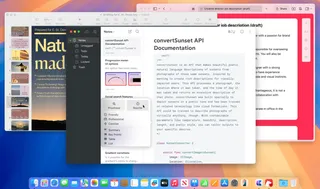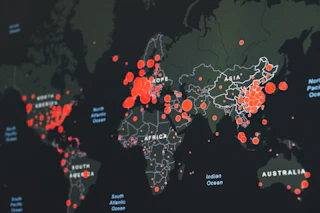AI Exposes the Deeper Rifts in the Writing Industry
This Just In: Monetization turns passions into sweatshops and AI is making it worse.

If you’ve been following me for a bit, you probably know about the longstanding dichotomy that I live with. It’s so much a part of my ethos that I’ve added it to the “What Influences My Writing” section of my website. The dichotomy is this:
I believe the internet and information should be free and accessible to all, and writers should be paid for their work and time. It seems impossible to have both simultaneously without making the web worse, yet I believe that the future of the web depends on figuring it out.
The problem is that these two things do not work well together. If something is accessible, the creator is generally not getting paid (at least not well). However, if the writer is getting paid well, then their work is typically not accessible to everyone, only those who can afford it. This creates a bigger problem, where the internet’s quality of information depends on your ability to pay.
Today, I want to explore the monetization side of the equation.
More than ever in the history of the world, people can get paid for writing. Job markets aside, hobbyists can make money on Medium or with self-published books on Amazon. While you likely won’t become the next Stephen King (trust me, I know), you can make some money, which is still a fantastic thing!
The problem is that whenever a new distribution channel opens to enable writers to earn money, someone will exploit that system and ruin it for everyone else. Of course, this is how capitalism works in a nutshell. But for today’s argument, we’re just looking at writing online.
If your Medium algorithm looks anything like mine, then it’s filled with people bragging about how much money they make as a writer on Medium. “Just publish four times a day,” they say, or, “I made $1,000 without publishing anything!” Granted, I manage the largest writing-focused publication on the platform, so I might see these articles more than you do. That said, after a decade on Medium, I know a thing or two about monetizing your writing there, and I am very skeptical of every one of these articles. It’s why I banned them from The Writing Cooperative years ago.
Likewise, it’s no secret that publishing multiple books on Amazon and tweaking the titles for better search engine optimization can help you gain traction and amass sales or page views on Kindle Unlimited.
For many writers, this leads to the James Patterson approach: publish as much as you can as fast as you can and hope something lands. This method will eventually build fans by sheer inertia, and then they may read or buy more of your stuff. Of course, this comes back to the age-old quantity vs quality debate — spoiler alert, I prefer quality.
Unfortunately, far too many writers prefer quantity and, with the rise of generative AI, they are churning out previously unthinkable amounts of “content.” I rejected an article for publication this weekend that bragged about writing 44 articles in 5 days. At that level of production, is any of it good? Maybe, that’s up to the reader. But, surely all of it is not.
This “publish as much as you can as fast as you can” approach exposes a darker side of AI generative slop: people aren’t even reading what they output.
There have been multiple instances lately where books published on Amazon have the AI prompts appear mid-paragraph. Furthermore, a nationally syndicated newspaper insert advised fake books that were hallucinated by AI. This is embarrassing for the writer and exposes the commodification of writing for what it is — something so focused purely on content at all costs that the writer can’t be bothered to proofread it themselves.
I get that mistakes happen, and I get that it’s possible to read something you wrote so many times that you overlook seemingly glaring issues. But the bigger problem here is that these AI mistakes are becoming common.
Unfortunately, the genie is out of the bottle with AI and monetized writing — again, writers should get paid; I’m clear on that — it’s just that those who choose to churn out quantity (quality be damned) can tend to overshadow and even push out opportunities for those focused on quality. This problem turns into a generational change throughout the industry, as new writers see the monetized slop factory model, which they start to believe and mimic, whether it works or not.
Everything doesn’t have to be focused on making as much money as possible. Not only can it suck the joy out of creating, but it can ruin the experience for people who don’t even know there’s another option.
Artists should focus on art as much as possible. Yes, money is important, but is it important no matter the cost? I hope not.




















































